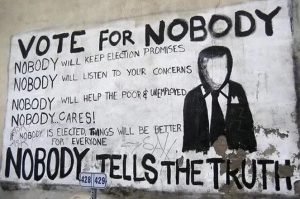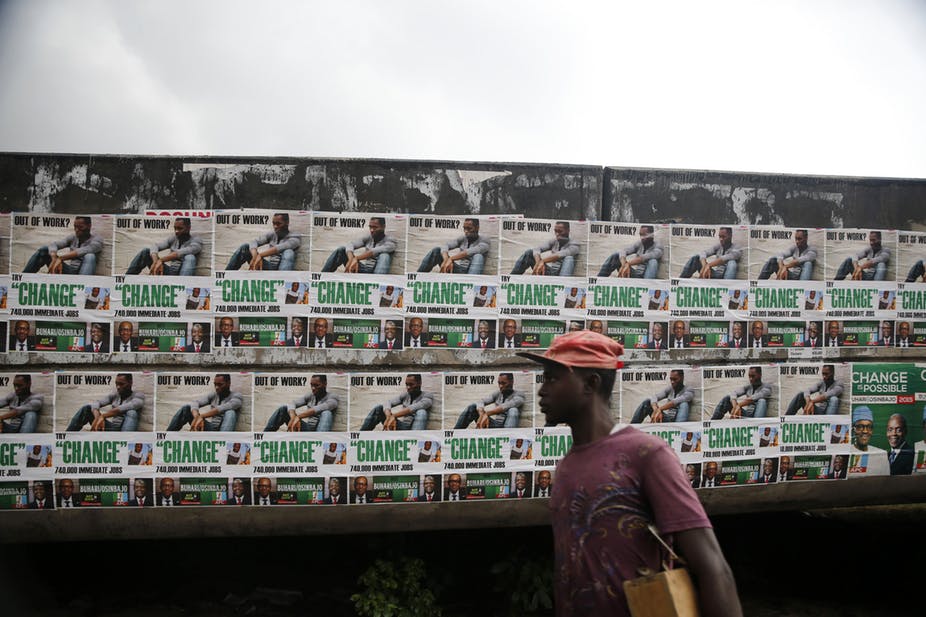Nigeria’s election season is here and the stakes are higher than ever. Like with the last general elections (2015) politicians are shying away from the most important questions. There have not been sufficient arguments about the economic future of the country. Maybe some instances of discussions on security, but certainly not enough on equally important issues like power generation and political structuring.
Like with past elections, politicians are making false promises. Some are counting on manipulating the electoral process through dubious means. Others are patiently waiting on their political godfathers to pull the finishing strings.
These politicians still depend on spending looted resources on vote buying. They are also actively recruiting young unemployed Nigerians as thugs to terrorize opponents and the public. Only this time around, Nigerians are a little defiant of the “business as usual.” Unfortunately, this will not be enough and the electorates must be ready to reject the old way, completely.
[perfectpullquote align=”right” bordertop=”false” cite=”” link=”” color=”” class=”” size=””]First, we must come to reality with the fact that our problems are neither rooted in a colonial past nor military dictatorship.[/perfectpullquote]
1. Should the Past be the Past?
Nowadays, Nigerians are bold to ask politicians the right questions about their plans for the country’s prosperity. But even as public condemnation is increasing ahead of the 2019 polls, the efforts are not enough to eliminate such endemic practices in an election season.
However, if a complete redirection of these practices is not in sight, there are still important discussions worthy of promoting in the interim.
First, we must come to reality with the fact that our problems are neither rooted in a colonial past nor military dictatorship.
The colonialists left some 58 years ago and the military has remained in the barracks since 1999. There is absolutely no reason to pin our problems to these pasts. Rather, we must look at the present.
Second, considering the 2019 polls will be the country’s 6th general elections, it is only logical to stop struggling with issues not directly linked to immediate prosperity.
If after 58 years of political independence we still have politicization of budget and gerrymandered welfare schemes leading electoral debates instead of sound economic policies, then something is fundamentally wrong. Nonetheless, there are some issues worthy of note.

2. An Urgent need for True Federalism?
It is time to re-evaluate and ask the tougher questions, like, what is the purpose of the union? Is it working? And if not, how can it be improved? Perhaps, the answers lie in the nature of our political structure.
[perfectpullquote align=”right” bordertop=”false” cite=”” link=”” color=”” class=”” size=””]The federal government is now the country’s largest project and the most important tier of government while others are almost obsolete.[/perfectpullquote]
The only period of glory for the Nigerian federalism was almost inexistent. The federal government has barely been a cable that connects our federalism. It is the power plant itself.
In the 1999 Constitution, state and local governments are domiciled with the responsibilities of improving lives through lower cadre administration. But somewhere along the line, we lost it.
The federal government is now the country’s largest project and the most important tier of government while others are almost obsolete.
It is unhealthily consumed with the enormous responsibilities of development, many of which have led to further corruption of the administrative process and the over-bloating of the federal government.
Meanwhile, this election must be about driving the debate on giving more autonomy to the state and local governments. They should be in charge of their constituents.
3. Will Power and Security Solve it all?
Power is the blood vessels of any modern economy. Nigeria is already losing billions of dollars to unsustainable alternative energy sources. There cannot be proper, sustainable economic progress without first, outrightly addressing this problem.
Nigerians should hold their leaders accountable to this. They must seize the election spotlight to drive critical commitments towards good reforms.
It is not a question of if anything can be done to address the problem of power or not. It is about forcing politicians to commit to the will. This will must flow to securing lives and properties.
Even if the economy has all it takes to flourish on the back of the uninterrupted power supply, if properties are insecure, any prosperity achieved will gradually disappear.
Although the country’s political literacy is improving, it is safe to say Nigerians are yet to fully realize how important election is to determining prosperity. If we must stop jumping from one bad political slogan to the other, accountability must be vigorously asked in the days leading to an election.
Abiodun Omonijo is a Nigerian writer and an insurance consultant.

